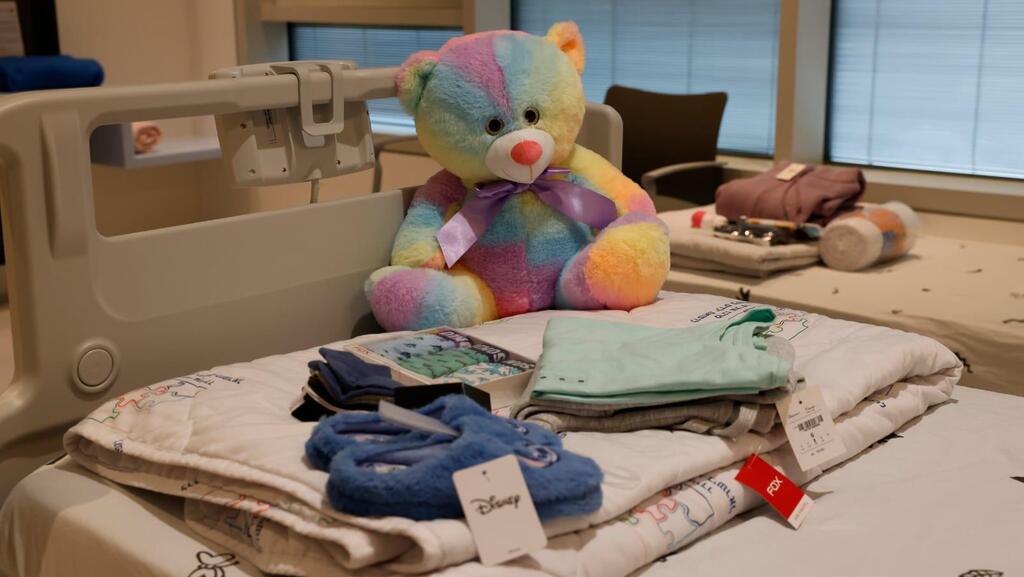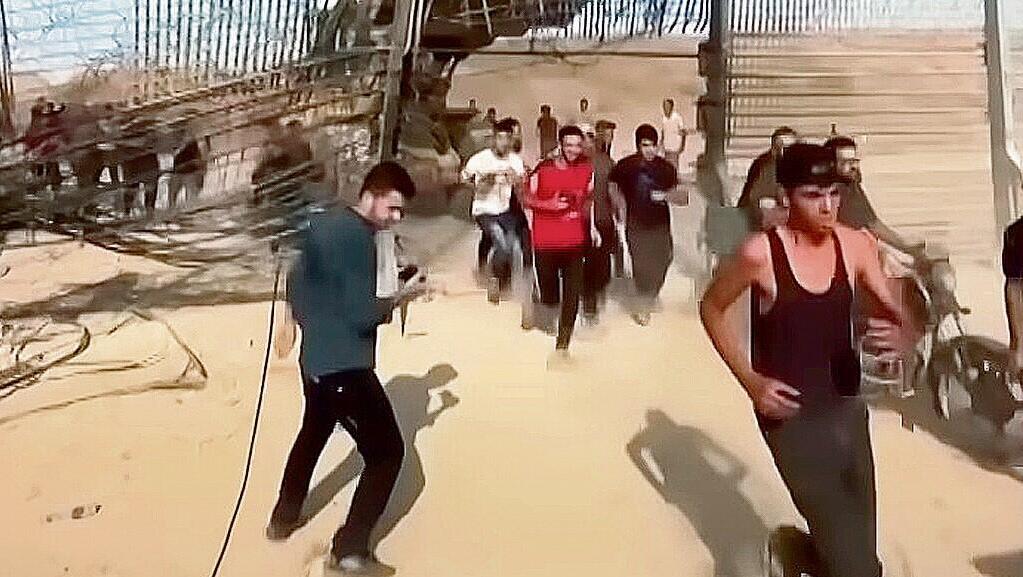Getting your Trinity Audio player ready...
Weight loss and complications resulting from poor hygiene are just some of the symptoms and effects diagnosed among 26 former Hamas hostages who were treated at Schneider Children's Medical Center after their release in late November 2023 as part of the first hostage deal. The findings were published in the Acta Paediatrica journal.
The hostage deal resulted in the release of 80 Israelis, another Israeli with Russian citizenship, and 24 foreign nationals (23 Thais and one Filipino). The study focused on 19 children and seven women aged 34 to 78 who were hospitalized after their return from Gaza.
4 View gallery


Military helicopter landing in the hospital with released hostages
(Photo: FADEL SENNA / AFP)
Significant weight loss was recorded among 15 of the 26 returnees. According to the study, the hostages reported their diet in captivity mainly consisted of rice and white bread without vegetables.
The most significant weight loss was recorded among the older women, in some cases exceeding 14% of their body weight. Eight children lost between 4.7% and 10.6% of their body weight. On the other hand, children under the age of 8 didn’t show signs of significant weight loss.
According to the researchers, the hostages were diagnosed with psychological trauma, complications resulting from poor hygiene, and shrapnel injuries sustained during the attack on October 7. Laboratory tests conducted on their blood and stool indicated infections resulting from the conditions they were held in.
The study also revealed that six hostages, five of whom were children, suffered from insect bites and skin-related conditions. Six patients had severe head lice infestations requiring multiple medical treatments and haircuts. Additionally, asthma got worse in four children with a history of the disease, requiring frequent inhalation treatments.
4 View gallery


Hospital beds prepared for children taken captive by Hamas
(Photo: Schneider Children's Medical Center)
Some 11 patients reported at least one episode of acute diarrhea during captivity. Stool tests identified a range of gastrointestinal pathogens, including various strains of E. coli, campylobacter, and salmonella.
Three children (ages 2 to 4) experienced febrile illnesses during captivity without proper medical diagnosis or treatment beyond fever-reducing medications. The study also found a high rate of positive antibodies for murine typhus and Q fever among asymptomatic patients. The researchers speculate these findings may be explained by mild infections during captivity.
The most significant finding likely relates to the hostages' mental state. According to the data, some of them struggled with nightmares after their return to Israel. All patients underwent mental health evaluations and received psychological and social support during their hospital stay.
They reported psychological terror, including isolation, intimidation, food and water restrictions, and mental abuse. Young children (under age 7) exhibited submissive behavior patterns, some of whom suffered from recurring nightmares and were observed speaking in whispers, as they had been required to do in captivity.
"The most troubling aspects we experienced as a medical team are the psychological ones," said Dr. Noa Ziv, a senior physician at Schneider Children's Medical Center who treated the former hostages.
"Long-term follow-up is needed to understand the medical and psychological implications of captivity," she added.
Out of all the Israelis who returned, 19 were children under the age of 18, most of whom were treated at the hospital.
"The findings described in the study are diverse and require attention from a multidisciplinary team," Ziv added. "It's important to remember these findings pertain to the immediate period following captivity and don't cover the necessary long-term follow-up and its implications.
“We primarily saw depression and psychological trauma. Despite the immense joy and relief of their release, the returnees faced significant challenges during the attack and captivity, and many witnessed horrors such as the murder and abduction of their loved ones."
According to Ziv, long-term follow-up is needed to understand the medical and psychological implications of captivity. "Children shouldn't have to deal with things like this, not even in their worst nightmares. We pray for the return of the remaining hostages and hope we'll have the opportunity to reopen our returnees' department once again."
Schneider Children's Medical Center Director Dr. Efrat Baron-Harlev noted: "This study provides critical insights into the immediate health needs of hostages upon their return. It underscores the need for a multidisciplinary approach in treating these complex cases."





